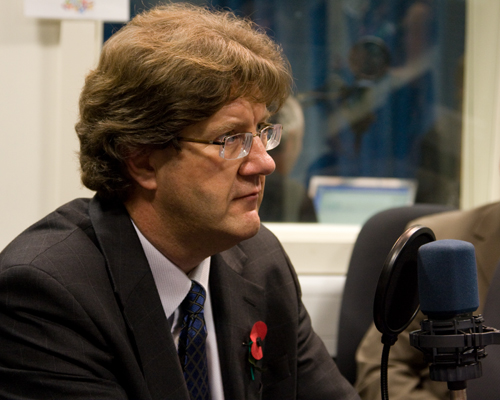
Mark Byford, the BBC’s deputy director-general, gave a talk at the University of Lincoln on Tuesday, November 3rd. His talk in the EMMTEC building was titled “The best journalism in the world?”
Byford claimed that he came “with no arrogance [and] a lot of humility”, but then went on to say: “the BBC’s journalism… is about [being] the best in the world.”
He said: “The journalism is the backbone of the BBC. We have got to touch everyone because they pay for it. In the UK the goal for the BBC’s journalism is touching the majority of the population in a meaningful way.”
Byford claimed: “Serving the public interest is the only reason we’re doing the journalism we’re doing, Revealing those stories, questioning people in power.”

“Challenging people in power, policy frameworks etc., because it’s in the public interest, not in [the powerful’s].”
But he went on to say that “[getting] the big interviews with the people that matter is critical,” and then showed a clip of Stanley McChrystal, the US commander in Afghanistan.
“It’s absolutely important to get the people in power, the people that matter, on the air, as well as merely reporting stories.”
He did not mention McChrystal’s previous job in the Americans’ “Joint Special Operations Command”, which journalist Seymour Hersh branded an “executive assassination wing”.
Byford also stressed the importance of impartiality, saying: “Impartiality is about not being partial and not having a view. It’s about width of opinion, such that you are able to engage with opinions you wouldn’t normally know about or necessarily support, but actually is giving you a totality of view.”
He was challenged on this point by Professor Richard Keeble, of the Lincoln School of Journalism, who pointed to research which showed that in the run-up to the Iraq war in 2003, only 20% of the voices on the BBC opposed the war.
Byford dodged the question and said: “That is one piece of research, there are plenty of others.”
“I feel confident that there were a width of perspectives,” he said, despite the evidence.
